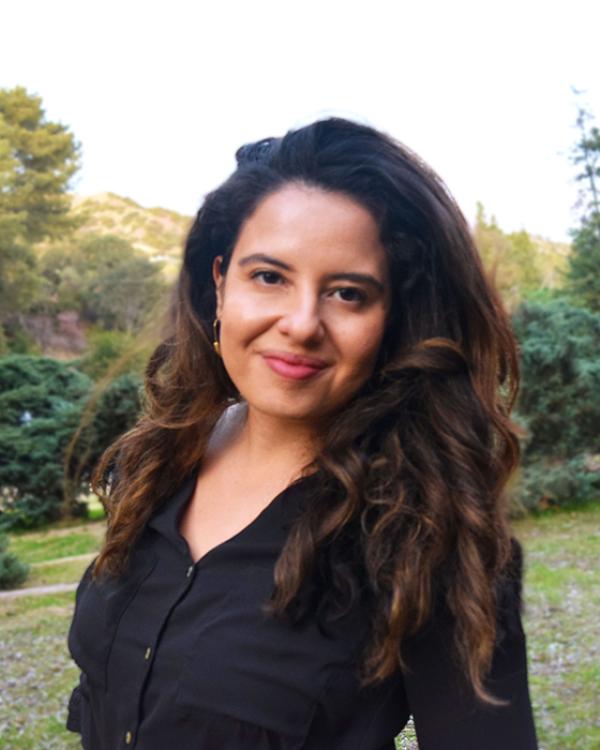
On February 10th, Natalia Jaramillo presented a workshop entitled “Let’s Talk about Posttraumatic Growth” at the UCSB Resilience Summit, a 24-week program put on by the Department of Psychological and Brain Sciences offering a certificate in the science and practice of resilience. Posttraumatic growth is the phenomenon of self-reported positive change following a traumatic or challenging life-event. Jaramillo jumped at the chance to present at the summit as soon as she learned about it. “I saw an important need as a result of COVID,” she says. “I heard from students that I taught this past summer that they were benefiting a lot from learning about and understanding psychological constructs like resilience and posttraumatic growth, so when I heard about this workshop, I was really excited to share my research and help people to have a better understanding about what posttraumatic growth actually is since it’s quite different than resilience.”
Jaramillo’s interest in posttraumatic growth began in the Los Angeles Children Hospital’s Pediatric ICU where she worked after graduating from Clark University. “That’s really where I learned more about trauma and became interested in looking at how trauma affects children, adolescents, and families, and the range of the experiences that result,” she says. “I saw pain at a much deeper level than I had witnessed before and suffering in a different way than I just hadn’t been exposed to.”
Even during her experiences at the LA Children’s Hospital, Jaramillo wasn’t sure that she wanted to pursue graduate school. Following the death of her father, however, her priorities shifted. “In the aftermath of his death, I started practicing meditation, started practicing yoga and saw my life in a different way and questioned a lot of things that were happening and tried to figure out what path I wanted to take, which is what led me to UCSB and pursuing my Ph.D.,” she recalls. I saw a new opportunity and recognized that yes, I am capable of getting a Ph.D.”
Now, Jaramillo researches collectively experienced trauma as a student in the Department of Counseling, Clinical and School Psychology. “My lab focuses on collectively-experienced traumas – natural disasters and acute mass violence,” she explains. “I’ve been learning how to understand the experience of people in a collective. We look at risk and contextual factors as well as ways of promoting adaptive recovery following disasters.”
Jaramillo is already conducting dissertation research on the psychological impact the pandemic is having on Latinx emerging adults. “I’m very interested in this population because it is one of the youngest and fastest-growing ethnic minority populations in the United States “Latinx emerging adults already have a lot to juggle: many are first-generation students, many are immigrants or children of immigrants, many feel like they need to mediate health-related information and are frustrated by health disparities impacting their community, and many have moved back in with their parents during the pandemic.” Jaramillo’s research is still ongoing, but she does feel confident in at least one thing: young adults are reporting aspects of growth during the pandemic like stronger relationships, more appreciation of life and seeing new possibilities.
She is specifically interested in how communities respond to tragedies. Typically, there are community-organized events after collective trauma like memorials, rallies, and marches. “I was interested in understanding whether those events in the immediate aftermath could influence posttraumatic growth,” Jaramillo says. “I found that the only category of post-tragedy event that predicted posttraumatic growth was ‘taking action’ events in students. Taking-action post-tragedy events may provide an opportunity for people to experience a sense of agency and may generate change as a result of engaging in fundraisers, rallies, and community forums, which subsequently could enhance PTG.
Jaramillo hopes that her presentation was helpful and informative for the attendees. “I see this workshop as being very valuable for everyone experiencing the pandemic to realize ‘oh yeah, I am experiencing some domains of posttraumatic growth!’ or ‘my friend who lost a family member is experiencing some of this, and now can understand more about the range of responses to trauma and better provide social support,” she says. Sharing her research with the community and making sure that her findings are useful is extremely important to Jaramillo. She asserts, “The more information people have during this time, the more they can find ways of coping, ways of growing, ways of engaging, and ways of feeling more connected.”
In the future, Jaramillo hopes to continue both her research and her practical application of those findings. “I really see myself being both a researcher and a clinician and doing a lot of work in the community and trying to really bring all my different interests together. I also have a big passion for teaching so I’m hoping to do that as well,” she concludes, “I have many different dreams.”